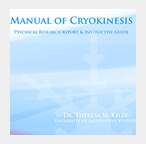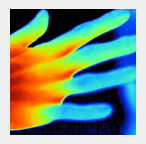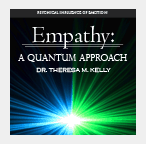Cryokinesis
Parapsychology Articles, Papers and Books
Home > Articles > Psychic Phenomena > Psychokinesis > Cryokinesis
![]()
|
| NEWSLETTERS |
| Get the best from QPsychics.com in your inbox! |
|
| PARAPSYCHOLOGY ORGANIZATIONS |
"With confidence in the importance of utilizing the investigative mode of the established sciences in order to inquire into the authenticity and to potentially explain the nature of psychical phenomena."  |
 |
 |
 |
 |
Condensation and Freezing Liquids
Cryokinesis is the psychical influence involving the deceleration of charged particles to low speeds, typically electrons because of their light weight, via an experients own electrical fields or through the remote influence of similar fields. Experients act as low energy particle decelerators whereby decreasing the temperature of systems, or objects, that are not in thermodynamic equilibrium. Condensation is the change in the (aggregation) phase of matter from the gaseous phase into liquid droplets at dew point. The dew point (about 59 °F (15 °C)) is the temperature in which a given parcel of air must be cooled, at a constant barometric pressure, for water vapor to condense into these droplets. For this type of exercise, the experient should be encouraged to use liquid water. The experient will need to obtain a drinking glass and fill the drinking glass about half with tap or freshwater. To start, experients should attempt the exercise with only half of the glass filled, and work their way up in volume based on successful influence. Later, the experients can increase to a nearly full glass of water to increase the difficulty of the exercise. The less water involved in the exercise, the less water required to be cooled to the dew point. This exercise can result in ice if temperatures slowly drop below the freezing point (32 °F (0 °C)). If rapidly cooled, frost may occur. Which type of frost is dependent of the temperatures reached (i.e .slight frost: 32 to 25.7 °F (0 to -3.5 °C ).
(Adapted from the paper "Manual of Cryokinesis: Applications, Experimentation, and Measurement” by Theresa M. Kelly, MsD.)
| |||
Related Articles |
|||

